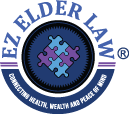On November 15, 2024, the Centers for Medicare and Medicaid Services posted the 2025 spousal impoverishment standards. These are the standards used to determine how the amount of income and resources that can be diverted to or retained by a Community Spouse. They also tell us the SSI rate and the Medicaid income cap. In […]
Blog
On November 14, 2023, the Centers for Medicare and Medicaid Services announced the 2024 SSI and Spousal Impoverishment Standards. The SSI rate for 2024, which was previously announced by the Social Security Administration, will rise to $943. The Medicaid Income Cap will rise to $2,829. The minimum MMMNA will be $2,465 and the maximum MMMNA […]
Effective January 1, 2024, the federal Supplemental Security Income payment amount will increase by 3.2 percent. The amounts paid to individuals and couples are below: Recipient Unrounded annual amounts for— Monthly amounts for 2024 2023 2024 a Eligible individual $10,970.44 $11,321.49 $943 Eligible couple 16,453.84 16,980.36 1,415 Essential person 5,497.80 5,673.73 472 Impact on Medicaid This […]

When applying for Medicaid, the nursing home spouse (called the Institutionalized Spouse) is often a joint owner (or sole owner) on checking, savings and other acounts. Should those resource be taken out of the name of the Institutionalized Spouse? The answer is generally “yes,” but it requires some context and some qualifications. The context and […]

Another “option” that may be considered in appropriate cases is divorce. Deeming between spouses terminates when the marriage terminates. In most cases, this “option” should be avoided because the emotional turmoil associated with divorce is significant and the CSRA can be set by court order, see § 1396r-5(f)(2)(iv) and (f)(3). Divorce also prevents an applicant […]

MCCA includes a mechanism for increasing both the CSRA and the MMMNA in certain cases. The methods by which this can be effected are described in 1396r-5(e), (d)(5) and (f)(3). Blumberg v. Tennessee Department of Human Resources, 2000 WL 1586454 (Tenn.Ct.App.) was a case where a Community Spouse sought a court adjustment of the default […]

Some couples might consider reducing the size of the marital estate by giving their resources away. Frequently this is the result when the plan is “home-made.” However, transfers for less than fair market value, including complete and partial gifts) trigger a period of ineligibility. 42 U.S.C. 1396p(c). It does not matter whether the applicant or […]

While nursing home bills accrue, the healthy or well spouse, known as the “Community Spouse,” [Note 1] struggles to identify and keep income and resources that are necessary to support herself. [Note 2]. To remedy this situation, Congress enacted spousal impoverishment provisions as part of the Medicare Catastrophic Coverage Act of 1988 (“MCCA”). [Note 3]. […]
The standards for the 2022 Community Spouse Resource Allowance and Community Spouse Monthly Income Allowance have been updated in the document below:



